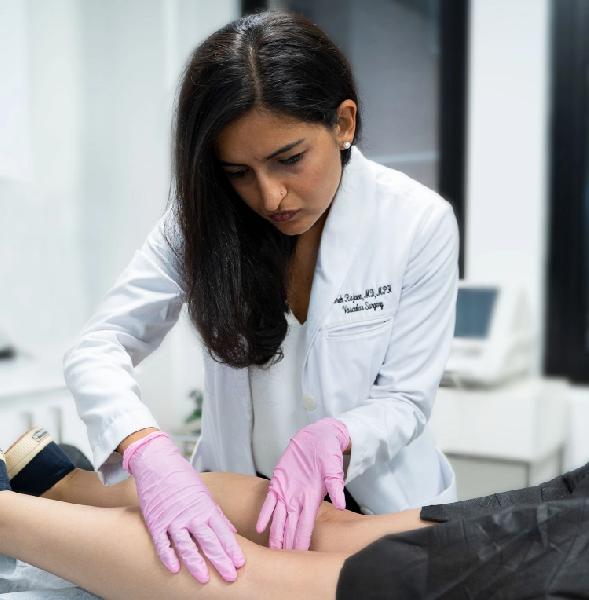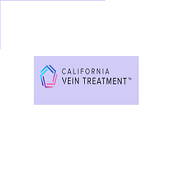What Kind of Doctor is a Vein Specialist? Are you wondering, "What kind of doctor specializes in veins?" If so, you're not alone. Many people experience issues with their veins, whether it's varicose veins, spider veins, or other vascular conditions. Seeking the right specialist is crucial for proper diagnosis and treatment. In this comprehensive guide, we'll explore the world of vein specialists, their qualifications, and the advantages of consulting with one. Advantages of Consulting a Vein SpecialistWhen it comes to addressing vein-related concerns, consulting a specialist offers numerous advantages: Expertise in Vascular ConditionsVein specialists, also known as vascular surgeons or phlebologists, possess specialized knowledge and training in diagnosing and treating various vascular conditions. They understand the complexities of the circulatory system and are equipped to identify underlying issues causing vein problems. Tailored Treatment PlansOne of the significant benefits of seeing a vein specialist is receiving a personalized treatment plan. These specialists conduct thorough evaluations to determine the most suitable approach for each patient's unique condition. Whether it involves lifestyle modifications, minimally invasive procedures, or surgical intervention, the treatment plan is tailored to address specific needs and preferences.
Access to Advanced TechnologiesVein specialists have access to advanced diagnostic tools and treatment technologies that enable precise and effective interventions. From ultrasound imaging for accurate diagnosis to minimally invasive procedures like endovenous laser therapy and sclerotherapy, these specialists utilize state-of-the-art techniques to achieve optimal outcomes with minimal discomfort and downtime. Comprehensive CareVein specialists offer comprehensive care that goes beyond addressing immediate concerns. They focus on promoting long-term vascular health and preventing future complications. This holistic approach may involve lifestyle recommendations, ongoing monitoring, and follow-up care to ensure the best possible results and minimize the risk of recurrence. Collaboration with Multidisciplinary TeamsIn complex cases or when underlying health conditions are involved, vein specialists collaborate with multidisciplinary teams to provide comprehensive care. This may include working closely with cardiologists, dermatologists, and other specialists to address interconnected issues and optimize patient outcomes.
Finding the Right Vein SpecialistNow that we've highlighted the advantages of consulting a vein specialist, let's delve into the types of What Kind of Doctor is a Vein Specialist who specialize in veins and how to find the right one for your needs. Vascular SurgeonsVascular surgeons are medical doctors who specialize in the diagnosis, management, and surgical treatment of vascular conditions, including those affecting the veins. They undergo extensive training in vascular surgery, which equips them with the skills to perform complex procedures to restore proper blood flow and address vein-related issues. PhlebologistsPhlebologists are medical professionals with specialized training in venous disorders. While not all phlebologists are surgeons, they are experts in diagnosing and treating vein conditions using a variety of techniques, including sclerotherapy, endovenous ablation, and microphlebectomy. They may come from various medical backgrounds, including dermatology, vascular medicine, and general practice. Interventional RadiologistsInterventional radiologists are physicians who specialize in minimally invasive procedures guided by imaging techniques such as ultrasound, CT scans, or fluoroscopy. While they primarily focus on treating conditions affecting blood vessels, including arteries and veins, some interventional radiologists have expertise in venous interventions, such as venous stenting and thrombolysis. DermatologistsDermatologists are medical doctors specializing in the diagnosis and treatment of skin, hair, and nail disorders. While their primary focus is dermatology, some dermatologists receive additional training in cosmetic and medical dermatology, including the treatment of vein conditions such as spider veins and varicose veins using sclerotherapy and laser therapy. Finding the right vein specialist involves several steps:
In conclusion, finding the right vein specialist is essential for effectively addressing vein-related concerns and achieving optimal outcomes. Whether you choose a vascular surgeon, phlebologist, interventional radiologist, or dermatologist, prioritize qualifications, experience, and a personalized approach to treatment. By taking the time to research, seek referrals, and schedule consultations, you can find a trusted specialist who meets your needs and guides you on the path to improved vascular health. 06:00
What is A Vein Clinic? |
